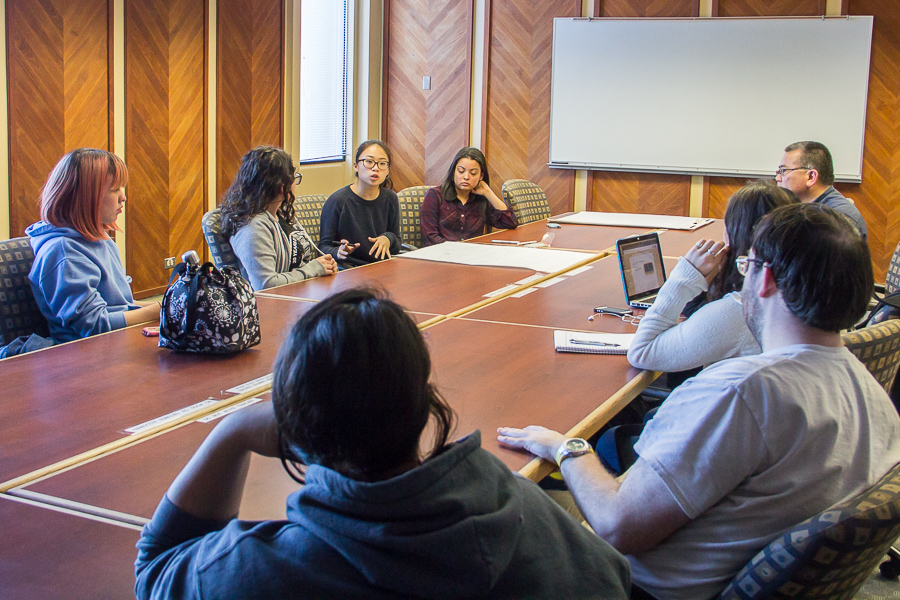
Students share ideas on addressing issues faced by different communities
ASUCD Senator Samantha Chiang, a third-year English major, held an input forum on March 1 in the Mee Room of the Memorial Union for students to voice ideas for a new cultural competency project. The project will aim to provide cultural awareness training for freshmen and new students.
“The purpose of the cultural competency training is to use the current political climate to address underlying issues of marginalization and underrepresentation that have always been at the crux of our institution,” Chiang said.
Chiang contacted Adela de la Torre, the vice chancellor of Student Affairs, who then directed her to Rich Shintaku, the director of diversity and inclusion in human resources. Shintaku was interested in the subject and felt his job responsibilities and background made him suitable to work with students on the project.
“I have the honor and privilege of serving in a position that focuses on building, enhancing and supporting diversity and inclusive excellence at UC Davis,” Shintaku said via email. “I help develop, manage, support and guide a portfolio of diversity and inclusion projects, initiatives and processes.”
Shintaku has a background in teaching and served as a professor of education at Oregon State University. He and Chiang are working to explore and develop the necessary steps to achieve the goal of cultural competency training for new students.
“It is important for all members of our academic community to continue along the path of cultural competency development,” Shintaku said. “[…] it’s just that we can and should take advantage of this important transition point.”
Chiang felt it was important to hold an input forum to gather feedback to create a program for students that was designed by students. Students at the forum discussed currently available resources and the things that needed to be included in a model as well as how and when the program should be implemented. She believes that since many projects by administration and ASUCD are approached paternalistically, non-ASUCD student involvement is pinnacle to the success of the project.
“The pitfall of representative government is that we are expected as voices for the communities that we supposedly ‘represent’, but this is obviously not the case,” Chiang said via email. “Every single person carries different intersections and identities with them that contribute to their idea of what is necessary to educate other students about cultural awareness.”
Chiang particularly found value in the representation from the student centers on campus, such as the Cross Cultural Center, the Student Recruitment and Retention Center and the LGBTQIA Resource Center.
“The people come from the pulse of their communities and they can do a much better job of representing community concerns than anyone who is only in ASUCD,” Chiang said.
Sasha Levin-Guracar, a second-year communication and American studies double major, heard about the project as a member of Chiang’s staff and wanted to get involved.
“There are so many students here from so many diverse backgrounds other students aren’t aware of when they first enter the school,” Levin-Guracar said via email. “This project is aimed to change that and educate incoming students about how to be culturally respectful and competent when it comes to the treatment of their peers.”
Levin-Guracar believes that good ideas were shared at the input forum and progress was made, but wishes more students could have attended. She sees many students who are uncertain about their future in this current political climate, and hopes that the project will result in increased awareness and respect for students of all backgrounds and cultures.
As for Chiang, she hopes the project will train all students in cultural awareness at a base level as well as inspire them to learn more about being allies to marginalized communities that they are not already a part of.
“The truth is our world is ugly and discrimination is rampant even on a seemingly inclusive campus like UC Davis,” Chiang said. “Unfortunately, the onus is on us as students to ensure that our communities are safe and welcome in the years to come. This is not an end goal, but rather a beginning.”
Written by: Jayashri Padmanabhan — campus@theaggie.org


